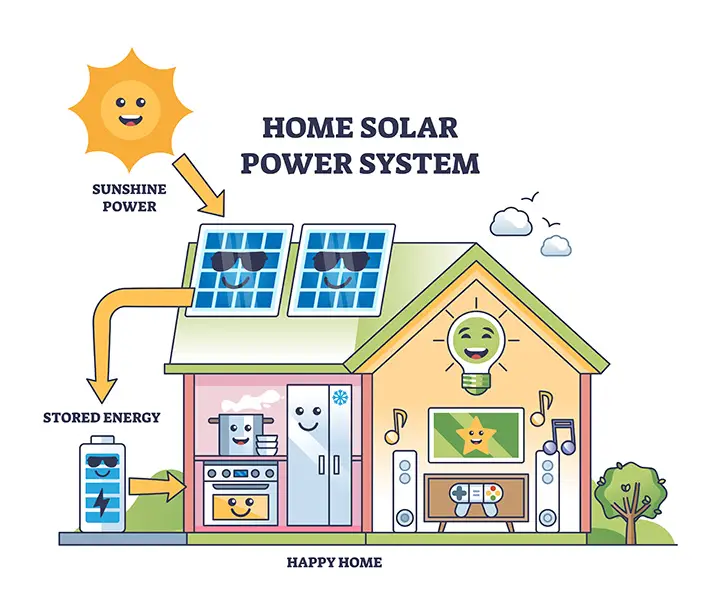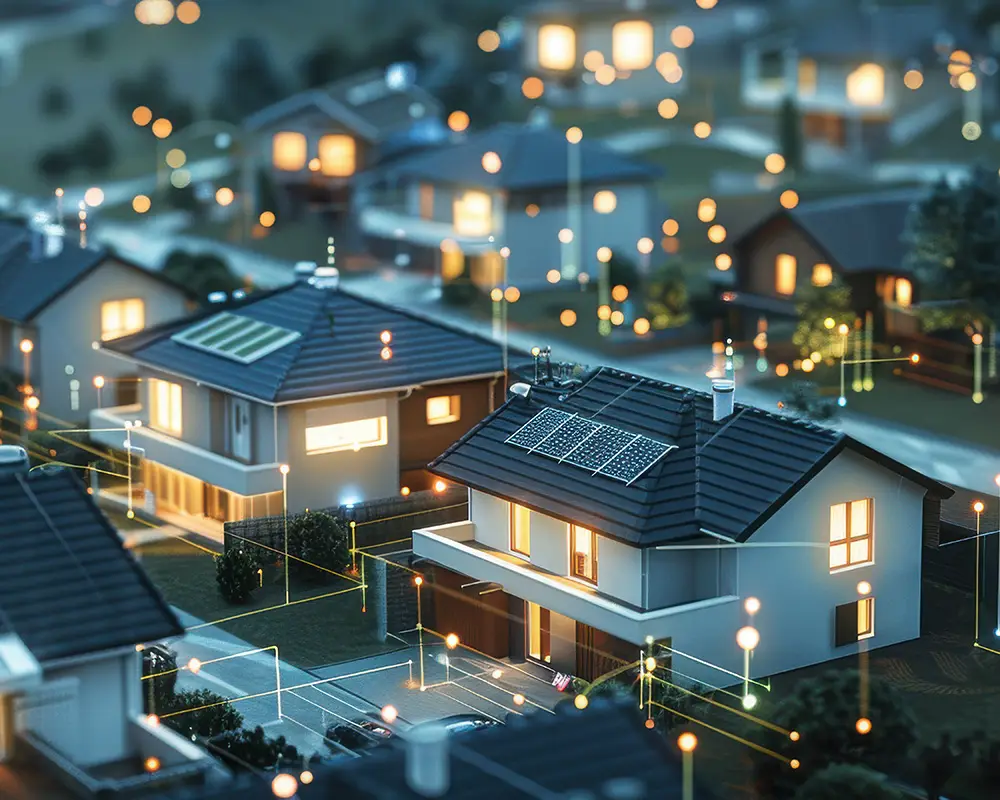Don’t let your valuable solar energy go to waste. Store the excess power generated during the day and use it whenever you need it – day or night, rain or shine.
Take control of your energy usage, reduce your reliance on the grid, and enjoy peace of mind with a home battery solution from HuMa Renewables.
You’ve made a smart investment in solar PV panels to generate clean, free electricity. But what happens when the sun goes down, or on cloudy days? Without storage, excess energy is often sent back to the grid for minimal return, and you’re forced to buy expensive electricity later. A solar battery changes the game. It acts like your personal energy reservoir, storing your surplus solar power for when you need it most.
What is a Solar Battery? A solar battery, also known as a home energy storage system, is a device that connects to your solar panel system. Its primary function is to capture and store excess electricity generated by your panels that isn’t immediately used by your home. Think of it as an energy savings account – you deposit free solar energy during the day and withdraw it later, significantly reducing the amount of electricity you need to purchase from your supplier.
By maximising the use of your own clean solar energy and minimising reliance on grid electricity (which often includes fossil fuels), you further reduce your household's environmental impact.
By storing your free solar energy instead of exporting it cheaply, and using it later instead of buying expensive peak-time grid electricity, you dramatically increase your solar self-consumption. This means using more of your own power, leading to significantly lower energy bills. performance and longevity.
Reduce your dependence on fluctuating energy prices and grid supply. With stored energy, you're more self-sufficient. Many battery systems can also provide backup power during grid outages (depending on configuration), keeping essential lights and appliances running and giving you valuable peace of mind.
Electricity is often most expensive during evening peak hours when demand is high. With a battery, you can avoid drawing from the grid during these costly periods by using your stored solar energy instead.
As homes become more electrified with things like electric vehicles and potentially heat pumps, managing energy usage becomes crucial. A battery provides the flexibility and storage capacity needed for a modern, energy-smart home.

Your solar panels convert sunlight into DC electricity.
This electricity first powers your your homes immediate needs. If more energy is being generated than used (common during sunny middays) the surplus automically flow into the solar Battery charging up.
The battery stores this energy efficiently until it's needed
When your solar panels aren't generating enough power (e.g., at night, during cloudy weather, or peak demand times), the stored energy from the battery is automatically discharged to power your home appliances.
Modern battery systems often include sophisticated software (usually managed via the inverter) that optimises charging and discharging. It can learn your usage patterns, consider weather forecasts, and even take advantage of time-of-use electricity tariffs (charging when grid power is cheap, discharging when it's expensive) to maximise your savings.
Only when your home's needs are met and the battery is fully charged will excess solar energy typically be exported back to the national grid (if you choose). When the battery is depleted and solar generation is low, you'll draw power from the grid as usual.

Take the next step towards energy independence and lower bills.
Contact HuMa Renewables today for your free, no-obligation quote and a personalised assessment of potential savings and grant eligibility.
Or call us on 01302 243344 to chat directly with an energy specialist.
This depends heavily on your average daily electricity consumption (especially overnight), the size of your solar panel system, and whether you want backup power. Our team performs detailed calculations during your free survey to recommend the optimal capacity.
Most leading solar batteries come with a 10-year warranty, often guaranteeing a certain level of capacity retention after that period or a specific number of charge cycles. With proper usage, many can last significantly longer
It depends on the battery’s power rating, capacity, and how the system is configured. Some systems provide whole-home backup, while others are designed to power only essential circuits (like lights, fridge, internet router). We’ll discuss backup options during your consultation.
Yes. We only install batteries from reputable manufacturers that meet stringent UK and international safety standards (e.g., MCS certification where applicable). Installations are always performed by qualified electricians following strict safety protocols.